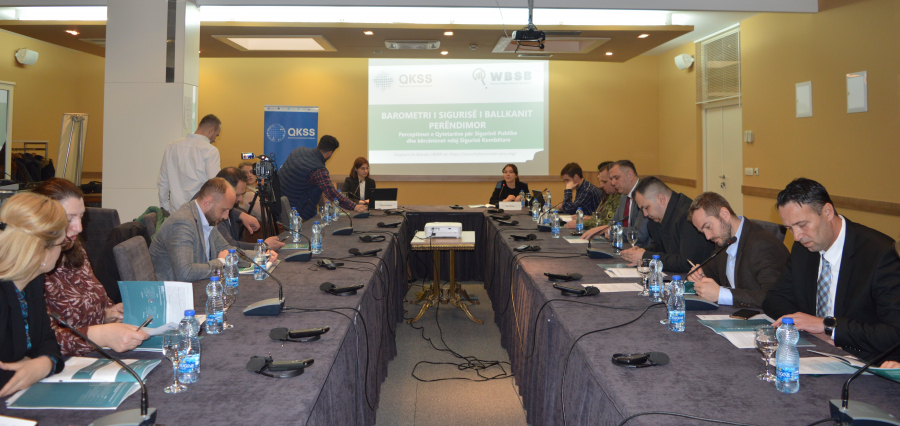27/02/2023

Kosovar Centre for Security Studies (KCSS) has published today (February 28, 2023) the second report of the Security Barometer survey in the Western Balkans for 2022 regarding Citizens' Perceptions of Public Security and Threats to National Security in Kosovo
The report consists of two chapters: i) perceptions on public security, and ii) perceptions on national security threats. The first chapter analyzes public perceptions of public safety, including how safe respondents feel in their communities and what issues pose a threat to the well-being of their communities. Chapter 1 of this report also includes public perceptions on the issue of domestic violence and perceptions on the risk of COVID-19. On the other hand, the second chapter contains an overview of public opinion on national security threats and risks.
Brain Drain ranks as the top threat to public safety, which is seen as a high threat or threat by 83 percent of respondents. Stray animals and drug abuse are also perceived as very threatening phenomena. Moreover, respondents are generally concerned about shortages of necessities, however, they express the biggest concerns about the shortages of electricity.
Furthermore, on the public safety chapter, respondents feel generally safe in their close communities. Nevertheless, the sense of safety gradually decreases as the communities grow larger.
At the level of national security, the respondents see the increased prices of goods as the highest threat to Kosovo's national security, followed by the energy crisis. Pollution and climate change, violent extremism and COVID-19 are seen as the lowest threats to national security.
When considering the COVID-19 Pandemic as one of the threats to personal and national security, the results are divided on the question of whether it continues to endanger public health, where almost half of the respondents answered negatively.
In the sub-chapter on Domestic Violence, according to the survey data, the main causes of domestic violence in Kosovo are poor economic conditions and low educational level. Respondents believe that raising the quality of education, and organizing more awareness campaigns are some of the measures that should be taken by institutions to prevent and combat domestic violence.
This activity is organized within the "Western Balkans Security Barometer" project. The WBSB serves as an instrument to measure the perceptions of the citizens of Albania, Kosovo and Serbia on various issues related to security, rule of law, justice, regional cooperation and peace building. This regional project is led by KCSS with the financial support of the National Endowment for Democracy (NED).